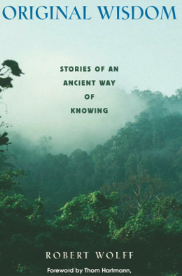Are conservatives blind? They seem to live on another planet. Or perhaps it is that I don't understand their prejudices. A smaller government but endless laws to control women's health. They still think Russia is our enemy. They want to do away with all our hard-fought safety nets. How can I see things so differently?
A vert long time ago we ate what grew by itself, always careful to leave enough of a plant to allow it to go on growing what we needed to eat We hunted but never more than what we needed to live. We survived for more than a hundred thousand years by living as part of, not on the planet as we do now.
Then someone knew better. We could grow the food we wanted ourselves, improve the yield with improved plants. Domesticate animals to help us plow the earth. Then why not grow animals in cages in order to eat their flesh. All that led to the totally new concept of "owning." Animals and early humans never knew owning, it was an unthinkable thought.
From owning came the idea that those who own more are better than those who own less. We invented hierarchies. Now we have hierarchies within hierarchies within hierarchies unlimited. So we come to today. Read that 400 people--individuals, probably mostly men--own more wealth than the bottom 150 million people in this country combined. Ecologies cannot function with such inequalities. And then there is the idea that a healthy economy is an economy that continually grows. Nothing on this planet grows forever. The laws of nature are birth, growth, fully functioning, decline, death; at infinitum.
Recently reread Ursula K. LeGuin's book of stories, The Birthday of the World, - 2002. As all her books the writing is superb and although her writing is often called science fiction it is not. There is science of course but people is what she writes about. Not always humans as we are today but other beings like us--one assumes two legs two arms a head, etc.-- who have evolved cultures that with only a little imagination could just as well be human.
All the stories in The Birthday of the World are thought-provoking but the last one, Paradise Lost, hit me smack between the eyes. It translates into today.
I hate to spoil a story so well designed, so well told. But I need to give an outline to make a point, several points. I'll make it as short as I can. Please read the book.
Lost Paradise is the story of a man-made thing designed around a careful copy of the Earth's ecology, sent through space to a planet previous probes have found to be "livable." Distances in space are enormous and science says that nothing can move faster than light. The planners knew that it would take five or more generations to reach the other planet. In order for the few thousand people to survive they must live in a man-made little world that is a completely closed ecosystem. There have to be strict rules about everything. For instance, procreation because the artificial ecology is designed to support this many people. Everything, absolutely everything, must be recycled. All travelers have daily tasks to keep the ecology working as it was planned to do. It is a "generation ship."
Underneath the description of the lives of individual people on that artificial little world there emerge first a few then more people who are, or learn to be, "in bliss." They call themselves angels, and further in the story we learn that there are archangels, in a tightly organized and controlled movement. The Bliss movement believes that their reality is all there is. Yes, that is true. Everything is provided and kept running. Their little world is all the reality they know. After three or four generations nobody remembers what Earth was like but what they can see on the movies about life on the old Earth was pretty awful: sickness, wars, accidents, hunger. For the angels the spaceship (that word never appears in LeGuin's story, by the way) is "heaven."
Inevitably the angels and those who remember that they are on their way to a destination, for a purpose, have dangerously clashing conflicts. The purpose of this tight world is not only to explore but perhaps settle people on the new planet, with unknown plants and animals, but a breathable atmosphere and an Earth-like gravity. The ship is supposed to return to Earth and eventually, possibly, bring more colonizers.
The angels don't want a destination, they want to remain in eternal bliss going nowhere.
Despite the conflict, destination is reached and because of the split every one of the travelers must be asked whether they want to stay on this new earth, or continue on the only world they know, "heaven," without destination, never touching another planet. Some make a brief visit to the planet but choose to get back to "heaven."
The story ends with how those who choose to stay (I think a minority) on the new planet must learn to deal with mud, having to wear shoes, weather, to actually experience night and day, to find edible plants or grow seeds they have brought with them.
The angels have gone. Some contact is maintained but that soon stops.
(Note: You can view every article as one long page if you sign up as an Advocate Member, or higher).





